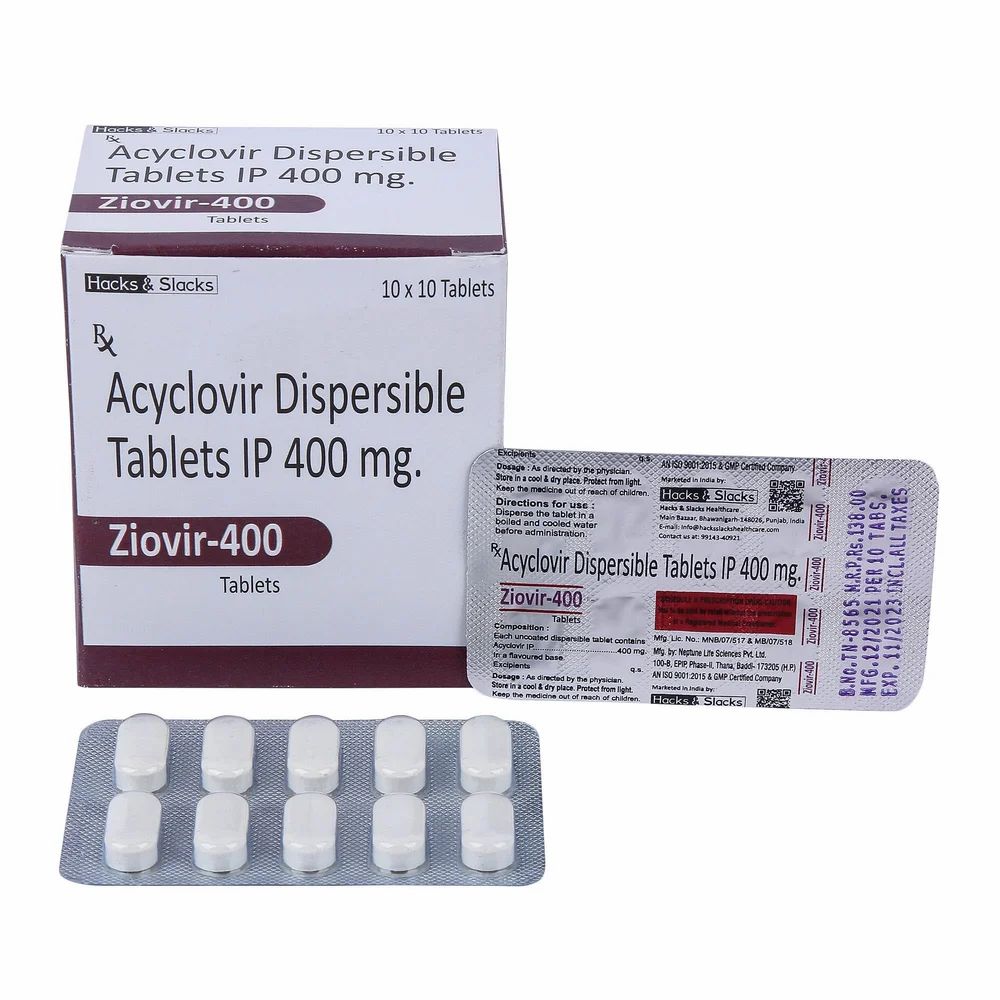Acyclovir: Health Benefits & Risks
What are the health benefits of acyclovir?
Acyclovir is an antiviral medication that is primarily used to treat infections caused by the herpes simplex virus, including genital herpes, cold sores, and shingles. Some of the health benefits of acyclovir include:
- Reduced duration and severity of outbreaks: Acyclovir can help reduce the duration and severity of herpes outbreaks, including genital herpes and cold sores. It can help relieve symptoms such as pain, itching, and burning.
- Prevention of recurrent outbreaks: Acyclovir can help prevent recurrent outbreaks of herpes infections in people with frequent or severe outbreaks. It can reduce the frequency and severity of outbreaks, allowing people to have longer periods without symptoms.
- Treatment of shingles: Acyclovir is also used to treat shingles (herpes zoster), a painful rash caused by the varicella-zoster virus. It can help reduce the pain and duration of the rash, as well as the risk of complications such as postherpetic neuralgia.
- Reduction of viral shedding: Acyclovir can help reduce the amount of the herpes virus shed from the skin or mucous membranes, which can reduce the risk of transmitting the virus to others.
- Treatment of other herpes virus infections: Acyclovir is sometimes used to treat other infections caused by herpes viruses, such as chickenpox (varicella) in children and herpes simplex encephalitis (a rare but serious infection of the brain).
It’s important to use acyclovir only as prescribed by a healthcare provider and to follow their instructions carefully. Acyclovir is generally well-tolerated, but like all medications, it can cause side effects and may not be suitable for everyone. If you have any questions or concerns about acyclovir, talk to your healthcare provider.
What are the health risks of acyclovir?
Acyclovir is generally considered safe and well-tolerated when used as prescribed. However, like all medications, it can cause side effects and carry certain health risks. Some of the health risks associated with acyclovir include:
- Common side effects: The most common side effects of acyclovir include nausea, vomiting, diarrhea, headache, and dizziness. These side effects are usually mild and go away on their own.
- Allergic reactions: Some people may be allergic to acyclovir and may experience symptoms such as rash, itching, swelling, dizziness, or difficulty breathing. In rare cases, allergic reactions to acyclovir can be severe and life-threatening (anaphylaxis).
- Kidney damage: Acyclovir can cause kidney damage, especially when used at high doses or for long periods of time. It’s important to avoid dehydration while taking acyclovir to help protect your kidneys.
- Neurological side effects: In rare cases, acyclovir can cause neurological side effects such as confusion, hallucinations, agitation, seizures, and coma. These side effects are more likely to occur in people with kidney problems or who are taking high doses of acyclovir.
- Skin reactions: Acyclovir can cause skin reactions, including rash, itching, and hives. These side effects are usually mild and go away on their own, but in rare cases, they can be severe.
- Liver damage: In rare cases, acyclovir can cause liver damage. It’s important to have regular liver function tests while taking acyclovir to monitor for any signs of liver damage.
- Drug interactions: Acyclovir can interact with other medications, including certain antibiotics and antiviral drugs, which can increase the risk of side effects or reduce the effectiveness of either medication.
It’s important to use acyclovir only as prescribed by a healthcare provider and to follow their instructions carefully. If you experience any side effects or have any concerns about acyclovir, talk to your healthcare provider.
TL; DR: Acyclovir Summary
Acyclovir is an antiviral medication that is used to treat infections caused by the herpes simplex virus (HSV), varicella-zoster virus (VZV), and Epstein-Barr virus (EBV). It is available in both oral and topical forms.
How it works
Acyclovir works by inhibiting the replication of the virus, which prevents it from multiplying and causing further infection. It does this by interfering with the viral DNA polymerase, which is an enzyme that is necessary for the virus to replicate.
Indications
Acyclovir is indicated for the treatment of:
- Herpes simplex virus (HSV) infections, including cold sores and genital herpes.
- Varicella-zoster virus (VZV) infections, including shingles and chickenpox.
- Epstein-Barr virus (EBV) infections, including infectious mononucleosis.
Dosage and administration
Acyclovir is available in several forms, including:
- Oral tablets: 400mg and 800mg.
- Oral capsules: 200mg and 400mg.
- Topical cream: 5% acyclovir.
The dosage and administration of acyclovir depend on the indication and the patient’s weight. It is typically taken orally, 2-5 times a day, for 7-10 days.
Side effects
Common side effects of acyclovir include:
- Headache
- Fatigue
- Dizziness
- Nausea
- Vomiting
- Abdominal pain
- Diarrhea
Rare but serious side effects of acyclovir include:
- Allergic reactions
- Stevens-Johnson syndrome
- Toxic epidermal necrolysis
- Hematological disorders
Interactions
Acyclovir can interact with other medications, including:
- Probenecid: May increase the levels of acyclovir in the blood.
- Cimetidine: May decrease the levels of acyclovir in the blood.
- Warfarin: May increase the risk of bleeding when taken with acyclovir.
It’s important to note that acyclovir should only be used under the guidance of a healthcare provider, and it should not be used for recreational purposes or without a prescription.




